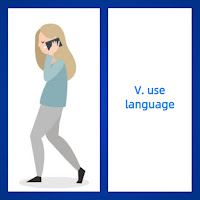ACTION VERBS 2

Action verbs are words that describe mental or physical actions. They are called action verbs because they can help create a more vivid image in the reader's mind. For example, "She walked up the stairs" is an example of an action verb. The importance of understanding action verbs is to be able to read more efficiently and accurately. We should look for the subject and then look for the action verb when we read. Once we find these two things, we will know who is doing what to whom or what is happening in a sentence. How to recognize an action verb Look at the picture above, pause for a minute, and think about what you see. You can notice a person (subject) and then look at what this person is physically doing (runs). Here you have identified the subject (he) and the verb (runs)
